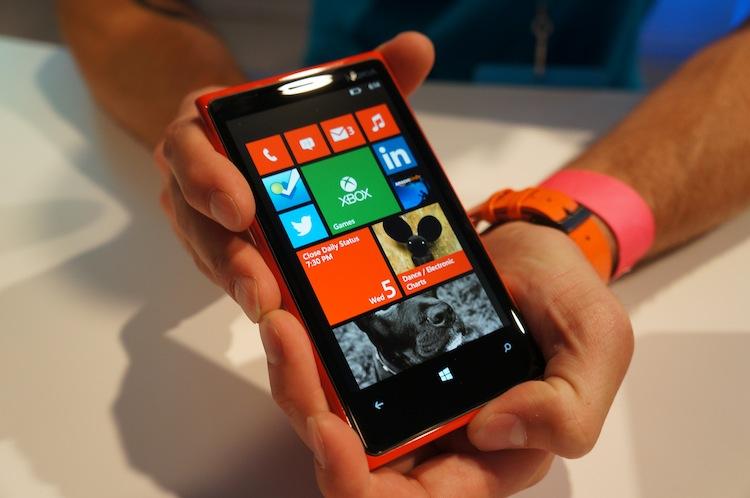
Until April of this year, Nokia was the world's largest cell phone manufacturer and had been for 14 very long years. And its in-house platform was the most popular mobile operating system until the likes of Android came and swept the rug out from under it.
Ever since the rise of Android, both Nokia and its mobile platform, Symbian, have been on a slow descent towards irrelevancy. Both market and mind share are creeping towards rock bottom.
Nokia has certainly seen better days, but it hasn't been resting on its laurels. The Finnish-based firm was quick to react. It saw its descent coming long before it happened and is now well into Plan B, a tight-knit partnership with Microsoft.
The first Nokia-made Windows Phones arrived early this year to a mostly unmoved audience. The big letdown stateside, especially for Nokia's flagship model, the Lumia 900, was equal parts Microsoft, Nokia and AT&T. Nokia released a phone that was riddled with some nasty (connectivity and camera) bugs, the Windows Phone platform has certain minimum requirements (and limitations) that kept devices from pushing any boundaries and AT&T decided to schedule its "biggest launch ever" on Easter Sunday, a day when more than half of its brick and mortar stores were closed.
Needless to say, the launch was amateurish and not what Nokia needed for its big reentry into the U.S. mobile market. And the company's performance has been nothing too promising since. Its Q2 2012 earnings revealed the company lost $1.01 billion and only managed to move 4 million Lumia smartphones. Engadget's Daniel Cooper points out that the only optimistic bit of news is "that sales of the Lumia range have roughly doubled each quarter."
Now the naysayers are abounding …
Since early this year, there have been numerous reports from analysts and investors who have all but thrown in the towel on Nokia. Just yesterday, BGR relayed a story from StreetInsider.com that stated Credit Suisse, a financial services firm, downgraded Nokia from "Neutral" to "Underperform".
Credit Suisse also stated operating losses will not likely see improvement in 2013, and "cash burn" will increase. The firm suggests the best case for the Finnish handset maker is to break up the company and sell its intellectual property. From StreetInsider.com:
"The firm said operating losses in its Device & Services unit will unlikely see significant improvement next year and cash burn will likely increase. They said the transition to Windows 8 will likely be slow and challenging.
In the longer-term, a break-up of the company should be considered, the firm said. Apple may be interested in Nokia's IP. Ericsson, Huawai, ZTE may be interested in parts of Nokia Seimens Networks. They said no company would likely be interested in the entire company with its 114,000 employees."
The company's and Elop's performance may be under the weather, but there are greener pastures on the horizon. I can't help but feel Nokia and Elop are being sold short. Companies as large as Nokia don't simply die overnight – or over the course of a year, for that matter. Research In Motion has been in a downward spiral for the better part of the last four years. And RIM is still hanging in there.
Nokia, too, has some time to turn things around. And it's on the fast track to doing so – that is if it can pull together a better launch than the Lumia 900 launch earlier this year and get its devices on more carriers.
Early last month, we were given a glimpse into what Nokia has been up to for the last seven months. The Lumia 920 and 820 were announced at a press conference in New York. With a gorgeous, high-res display, wireless charging, competitive specifications and one of the best smartphone cameras to date, the Lumia 920 has turned quite a few heads.
All Nokia needs now is to pull the trigger and release its latest handsets to the world. Unfortunately, that requires Microsoft to give the green light on Windows Phone 8, which is expected to happen towards the end of this month.
None of this is to say Nokia can bring it home without jumping over a few hurdles first. And the HTC Windows Phone 8X, another signature Windows Phone, is a rather large hurdle. But Nokia's products (Nokia Maps, Music, PureView, etc.), especially on the Windows Phone front, should have enough value proposition to snuff a good portion of the competition.
What say you, folks? Is Nokia done? Are its products DOA? Or does the Finnish firm have yet another chance to turn things around? Will the Lumia 920 be the breakthrough Windows Phone device?